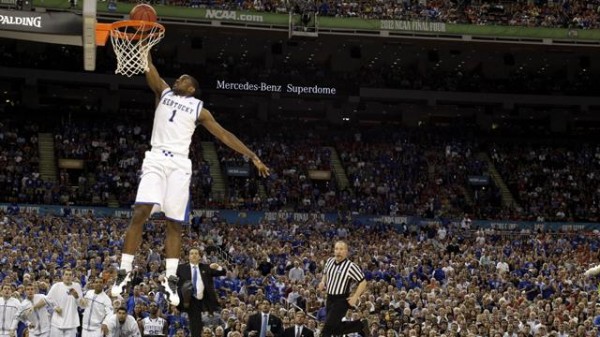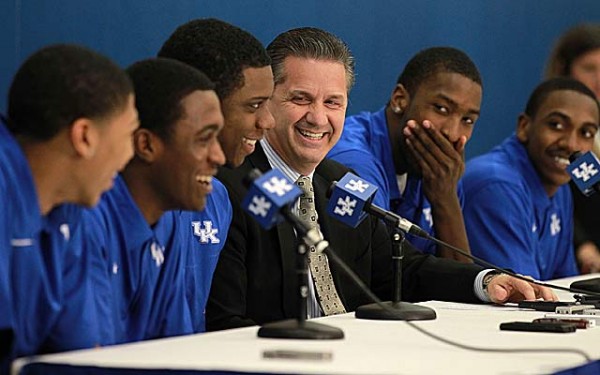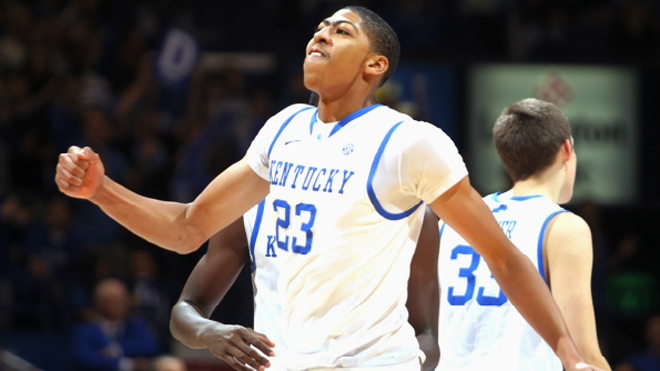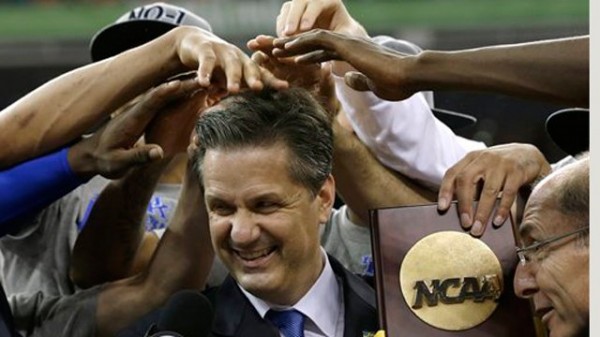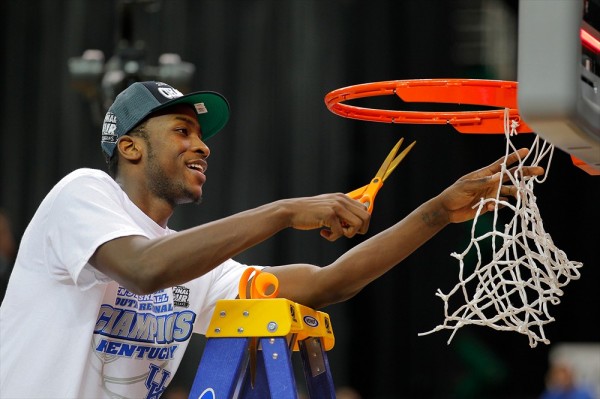Can All Six Expected Kentucky Draftees Find NBA Success? History Shows It’s Unlikely…
Posted by EJacoby on June 27th, 2012At this Thursday’s NBA Draft, expect to hear six former Kentucky players’ names called. But what are the chances that all six end up having strong pro careers? Four of the UK players are locks to go in the first round while two others are fringe picks, so there are high expectations for this group of newcomers. Has any past college team ever produced four or even five solid pros in the same draft? It turns out that 12 different college teams have seen at least four of their players get selected in a draft since 1989, when the draft shrunk from seven rounds to two. Unfortunately, none of these teams produced more than three successful pros, though the most recent examples include small sample sizes and show some promise. The bottom line is that history is working against the six former Wildcats, and it would be unprecedented for even five of them to pan out. Kentucky basketball has had a way of setting records recently, though, and it wouldn’t come as a surprise if most or all of Anthony Davis, Michael Kidd-Gilchrist, Terrence Jones, Marquis Teague, Doron Lamb, and Darius Miller eventually become strong NBA players.
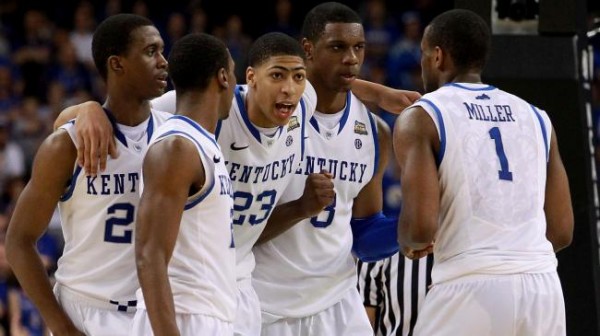
Can at least five Kentucky players from the upcoming 2012 NBA Draft end up having strong careers? (AP Photo)
Since the draft shrunk to only two rounds back in 1989, no college team has ever had six players drafted in the same year. It goes to show just how talented the 2011-12 Wildcats were, starting at the top with the expected #1 pick Anthony Davis. The 2006 Connecticut, 2007 Florida, 2008 Kansas, and 2010 Kentucky teams are the only others to produce as many as five NBA draft picks, so the trend has been pointing toward this day.
Today we’ll break down the teams that have come closest to producing four quality pros, including the most recent teams which still have a chance to do so. In order to qualify as a successful pro, our criteria requires players to have enjoyed extended, productive NBA careers. Career scoring averages of around 10 points per game is a general floor. Statistics don’t always tell the tale, so minutes played and games started are also considered to generally mean that a player was useful to his team. A one-stop statistic is Win Shares, which calculates the value a player adds over accumulated time and can be easily accessed through Basketball Reference’s database. Players who aren’t ranked in the top 20 Win Shares of their draft class generally don’t qualify as contributors. We’ll note if exceptions apply for certain players.































